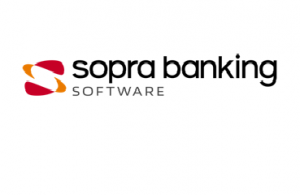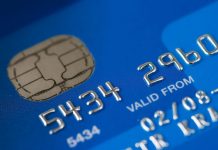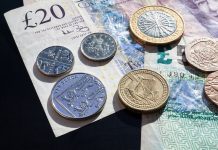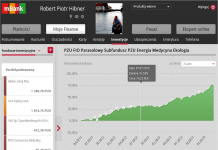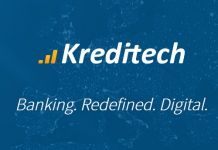According to Sopra Banking, Governments are starting to realise that blockchain technology holds promise and offers opportunities for innovation in its methods of interaction with citizens and building digital services. Also referred to as ‘distributed ledger technology’, the blockchain is a way of recording information in a linear manner, somewhat like a database. Protected using encryption, each part of the chain is digitally signed for non-repudiation of the information therein. For example, cryptocurrencies, such as Bitcoin, use a blockchain based on a decentralized model, replacing the traditional middleman of current banking processes, and as a result making it a more seamless and potentially faster way to transact money or data.
Described as a ‘linear database’ each ‘block’ holds time stamped and encrypted details of a transaction in the history of the coin (when used for cryptocurrency) or data (in other uses like a ledger).
Where Do Governments Stand on the Use of the Blockchain?
Governments all over the world are starting to embrace the blockchain for a variety of uses. However, until recently there was controversy around the use of the blockchain cryptocurrencies, like Bitcoin. This was mainly down to the use of encryption to protect the transfer of money or data, which allowed a degree of privacy and anonymity integral to the model. This anonymity of ownership that governments value was seen as extremely attractive to criminal forces who would use to hide their identity. However, earlier this year, this anonymous model was shown to be fallible when FBI agents were able to trace $13.4 million worth of Bitcoin transactions from the infamous Silkroad to a drug dealer.
But blockchain is not solely used for cryptocurrencies, and the recognition of this has prompted governments to become more involved in looking at alternative uses of the technology. Uses that can allow for better government – including citizen services and communication. Governments need to make use of modern technologies, both to control criminal activity in their jurisdiction and maximize on economic opportunities for the sake of their citizens and blockchain technology offers a tantalizing prospect for this to happen.
Many world governments are now looking into the various uses of the blockchain, not just in terms of financial transactions, but also on a far broader scale.
United Kingdom: The UK Government and their Government Digital Services division have been exploring how to use the blockchain technology as a digital register. These authoritative lists include records such as land registry information, company data and car registration details. The data within these registers is often sensitive and security is paramount. GDS are looking at the use of the blockchain as a possible protocol for these registers to maintain that integrity. The UK Government Office for Science has created a detailed report entitled, “Distributed Ledger Technology: beyond block chain” to guide a range of government services and reduce fraud, improve communication and boost innovation in this area.
United States: The USA government has awarded $3 million to researchers to look at the uses of cryptocurrencies, including their application to ‘smart contracts’. Smart contracts are methods of turning a standard contract into a rules based executable program – the rules then executing the various parts of the contract throughout its lifecycle. In a government context, smart contracts could revolutionize the way that financial transfers such as tax and funding grants take place. This is because each transaction is recorded and time stamped in the blockchain and so the security of the transaction can be assured and the encryption make it tamper proof.
Singapore: The Singaporean government along with the Monetary Authority of Singapore (MAS) are investing around $225 million in FinTech and innovation,using blockchain technology for assured record keeping, prevention of money laundering, and other uses.
Tunisia: The Tunisian government are using blockchain technology to improve accessibility of financial services to all of their citizens, something that was previously not offered in Tunisia. The system is being hailed as visionary e-government,offering a future-proofed system that allow Tunisia to build a more robust citizen finance platform, when in 2015 become the first nation to offer its national currency for transmittance through cryptographic technology.
Whilst governments are starting to utilise the available technology, there are still many further opportunities to explore.
Citizen Identity
Citizen identities are used to access online government resources and make various financial transactions, from tax returns, to benefit claims. The identity has to be verified and offer assurance that proves that the person claiming the identity is who they say they are. One place that this is being explored is via identity standards bodies such as Kantara Initiative. In this way the blockchain is seen as a way of creating a trusted history of an individual, which can then be used as part of the verification process. This use of the blockchain could solve some of the issues of secure user verification, which can be onerous at best, and especially for wide citizen demographics in countries with larger and more mobile populations.
Assured Voting
Electronic voting is already used in a number of countries, but is subject to fraud. Now cryptographic voting is also being trialed in countries such as Denmark, where the Liberal Alliance party used blockchain technology for internal voting. Blockchain technology allows a user to cast a vote in the form of a ‘coin’, which can then be validated and verified – all whilst remaining anonymous. In Virginia, the group Follow My Vote are advocating strongly for blockchain technology, due to the fact that individual voters can follow their vote and confirm whether it has been correctly allocated.
Land Registry and Title Deeds
The registration documents that are generated whenever, land, a house, or other building, changes hands can go back years, need to be notarized and often are held by lawyers to initiate contract exchange. The Honduras government is currently implementing a blockchain system for maintaining a state owned land registry that is much more centralised and accessible.
Official Acts and citizen transactions
The fact that the blockchain allows a traceable and secure ledger to be created for any particular act or transaction makes it perfect for creating a timeline of events and record of transactions. A perhaps unusual case of the use of the blockchain was the recent marriage in Estonia of Edurne Lolnaz and Mayel de Borniol – only recorded on bitcoin, and made possible through the flexibility of the Estonian e-residency program.
Crypto-Government – what does the future hold?
Gartner’s The Hype Cycle for the Programmable Economy 2015, report describes how blockchain based technologies will cause massive transformation across world economies as they become more mainstream and accepted and as a result integrated into government use. The blockchain has great potential for creating more transparent government processes using its decentralized model of transaction, as well as increasing the speed and security of transactions between departments, bodies, and with citizens.
Of course, national governments are not renowned for their speed of implementation. However forward thinking governments may start to make small steps, such as in the sphere and smart contracts, and so the replacement of outmoded legacy systems may well be in sight.















